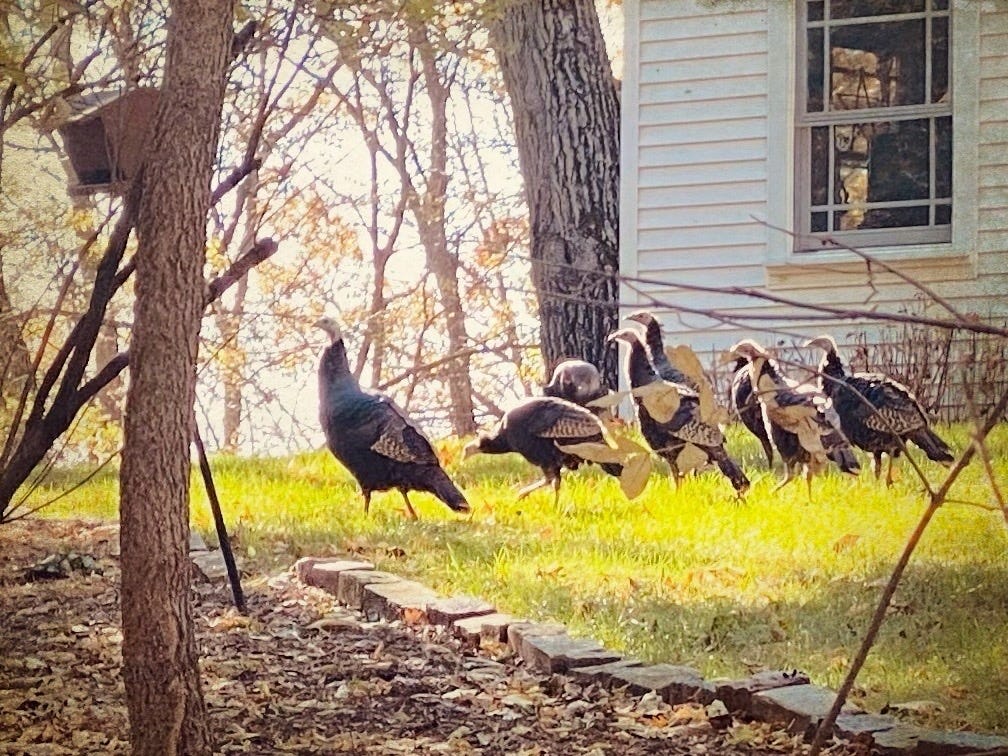Coffee Contemplation: Recipes and Ideas
A post Thanksgiving reflection.
Audio narration by David Marlow
Transcript:
David Marlow-Here is this week's coffee contemplation, and the inspiration for reflection comes from a rather unlikely source: horse manure.
It's the day after Thanksgiving, and I want to frame this in the context of being thankful for what we have today, while also giving thanks for the good things that are yet to come.
The horse manure reference is from an article purported to have been printed in the Times of London back in 1894. In that article, they predicted that by 1950, every street in London would be buried nine feet deep in horse manure. It came to be known later as the horse manure fallacy.
Now, the horse manure fallacy is the name given to that all too human behavior we have of assuming everything will continue on as it is now.
In the horse manure example, the assumption was power was generated by horses and more horses produced more manure. And even to haul away the manure required horses, which produced even more manure.
It would be this self-perpetuating problem that was their assumption. That's the fallacy. And of course, it's funny to think of that today, I also read another prediction by an economist at the time that predicted economic growth would top out because we only had so much land to grow the crops on to feed the horses.
Both of those predictions in retrospect seem genuinely silly, right? Things changed in ways that no one could have predicted back in the 1800s. We've developed steam-powered and later gas-powered engines and so forth. But even that created a problem. We had pollution.
Many thought pollution was an unsolvable problem that was going to take us out. Yet we have made great strides in reducing pollution and becoming far more energy efficient.
So with that in mind, I want to share an idea from Paul Romer. He was quoted in The Rational Optimist, which is a great book, by the way, if you haven't read it, Matt Ridley is the author.
Romer's insight is what I want you to think about. Ponder it both from the inherent truth of the insight in terms of optimism and also the truth of it as we look at things that are limiting or less than optimal today.
“Every generation has perceived the limits to growth that finite resources and undesirable side effects would pose if no new recipes or ideas were discovered, and every generation has underestimated the potential for finding new recipes and ideas. We consistently fail to grasp how many new ideas remain to be discovered.”
I'm going to leave you with that and invite you to think about it in the context of Thanksgiving, as well as Christmas if you celebrate that season, or the end of the year.
Whatever sort of reflective practice you have for this time of year, I invite you to take that and use that as your coffee contemplation today.
Quest well.




Absolutely love this post and the horse manure fallacy. Makes me think of Y2K and predictions of "planes falling from the sky". Worst case we could have replaced all computers made before a certain year, and that's something we normally do anyway. The belief that "even to haul away the manure required horses, which produced even more manure." is terrible math. The haulers are removing much more than they leave. I guess all fallacies involve incorrect assumptions and some include poor math. I worked with a very smart engineer in a meat processing plant and he claimed "significant amounts of meat was reprocessed over and over for days on end (a never ending cycle resulting in very old meat in our batches)". This was because each batch had about 2% of rework in it. However, the amount of product from the initial batch decreases exponentially as more batches are produced. Pretty soon you are talking PPB and I wouldn't call that significant amounts.
It’s funny you say that because I’ve been reinventing myself for a while now because AI has been taking over my jobs. Sometimes, I’ve been in that position of thinking that I’m in trouble, but somehow, opportunities continue to appear, and I keep going. Now, that’s kind of the life of an entrepreneur, isn’t it?
Thanks for your awesome insights. ☺️